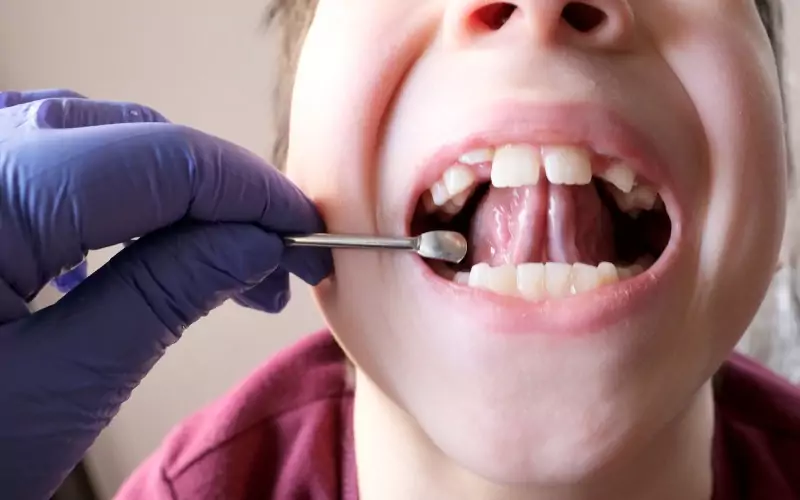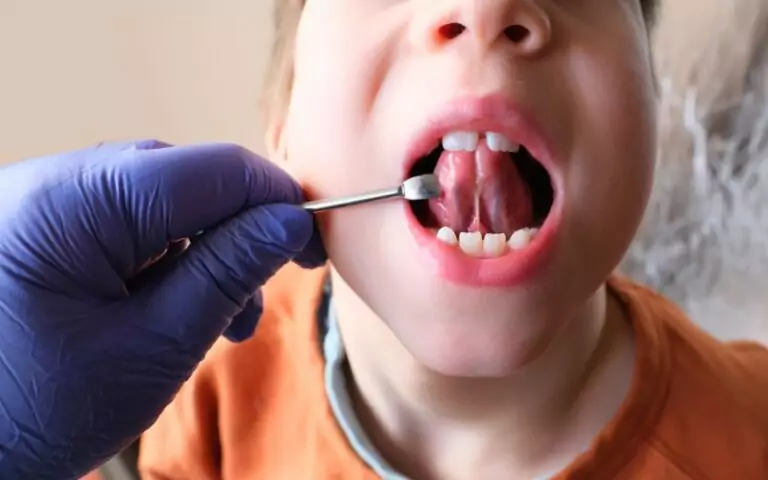Tongue-tie release surgery, also known as a frenotomy, is a common procedure used to correct a condition known as ankyloglossia. This is where the band of tissue under your tongue, or frenulum, is too tight or thick, and restricts the tongue’s movement.
This procedure can significantly improve tongue mobility and alleviate associated issues with breastfeeding, speech, and oral hygiene. Knowing what to expect after a tongue-tie release surgery, either yours or your child’s, and knowing how to care for the site can help ensure the success of the surgery.
Table of Contents
ToggleImmediate Post-Surgery
Right after the surgery, there may be some discomfort or pain, but it is generally only mild to moderate. There might be slight bleeding from the incision site that stops quickly. Infants and young children may be fussy or irritable immediately following the procedure, but they should recover swiftly.
Recovery Period
The recovery period varies depending on individual healing factors and the extent of the procedure. Generally, discomfort and swelling should subside within a week or two. Patients should avoid strenuous activities and follow a soft diet during this time to minimize irritation to the surgical site. Exercises may be given to improve movement and prevent re-attachment.
Age Factors
For infants, the recovery period is relatively quick. Any discomfort during feeding usually improves within a few days as the tongue mobility increases. Young children may require some time to adjust to their improved tongue mobility, but generally recover quickly. Teens and adults tend to experience a longer recovery period.
Dietary Restrictions
Avoid spicy or acidic foods that could irritate the incision site, as well as hard, crunchy foods that could injure the area until it has fully healed. Instead, choose soft, easy-to-eat foods like yogurt, mashed potatoes, pureed soups, and smoothies.
Pain Management
Over-the-counter pain medications can usually manage any pain. Check with your dentist or health care practitioner before giving pain medications to infants and young children, however. Generally, this should only be needed for a few days to a week after the procedure.
Complications
While complications are very rare, you should watch for signs of infection, excessive bleeding, or difficulty breathing/swallowing. Contact your dentist or healthcare provider immediately if you notice any symptoms.
Symptoms
Symptoms of infection may include increased redness, swelling, warmth, or discharge from the area. Fever and chills can also be signs.
While some bleeding immediately after surgery is normal, persistent or excessive bleeding beyond the first few hours may require medical attention.
In rare cases, swelling or other complications may lead to difficulty breathing or swallowing; in these cases, seek immediate medical assistance.
Patients may experience varying levels of discomfort, ranging from mild soreness to more significant pain, particularly during the first few days post-surgery. Be sure to communicate your pain levels to your dentist. If pain is persistent, extreme, and doesn’t start to decrease, this may be a symptom of an issue that needs urgent care.

Reattachment of Frenulum
There is a small risk of the frenulum reattaching; this occurs in only approximately 4% of frenotomies. You can reduce your risks of this by performing your post-operative stretching exercises as directed. Watch for signs of restricted tongue movement or recurrence of symptoms that prompted the surgery initially.
Post-Surgery Precautions
Maintaining good oral hygiene is essential for preventing infection and promoting healing. Brush your teeth and rinse with salt water as directed by your dentist. Babies can bottle- or breastfeed right away. Swelling of the lip may occur. If necessary, try alternative feeding methods like using a syringe. Gently wipe your baby’s mouth with a clean, damp cloth after each feeding. Young children can also have water or bottle feeds immediately, and gradually progress to soft solids when the child is comfortable.
Avoid smoking and alcohol consumption, both before and after your surgery for as long as possible, or at least a couple of weeks. Smoking can impair circulation, as nicotine constricts blood vessels, reducing blood flow to the surgical site and increasing the risk of complications such as infection and delayed healing. Excessive alcohol consumption can interfere with the body’s immune response and slow healing, too. Alcohol dilates blood vessels, which can increase bleeding and swelling.
Let your dentist or healthcare provider know if you are on any medications, as they may increase the risks of complications. For example, nonsteroidal anti-inflammatory drugs and blood thinners can increase the risk of bleeding or other complications. It’s essential to follow your healthcare provider’s recommendations for medication management before and after surgery carefully.
Diligently follow your post-operative instructions provided by your dentist or healthcare provider, including recommended stretching exercises. These tongue exercises can encourage mobility and function, using simple movements to stretch and strengthen the muscles.
Make sure to schedule follow-up appointments as recommended for monitoring, and keep open communication lines with your dentist and other healthcare professionals to help avoid any issues after the surgery.
Tongue-tie release surgery is a relatively simple and straightforward procedure, with a short healing period, which can improve tongue mobility. At Century Stone Dental, we can help identify whether you or your child may be experiencing tongue restrictions due to a tight frenulum, and discuss your options with you. We are always here to help and answer your questions.
He’s completed a number of additional courses to best serve his patients and be able to educate them too. No matter your age or dental condition Dr. Sims can assist you in a professional manner and loves answering any of your questions or concerns.
- Can Tongue Tie Grow Back? - July 10, 2024
- What To Expect After Tongue-Tie Release Surgery - May 24, 2024
- Does Tongue Tie Affect Speech? - April 26, 2024





